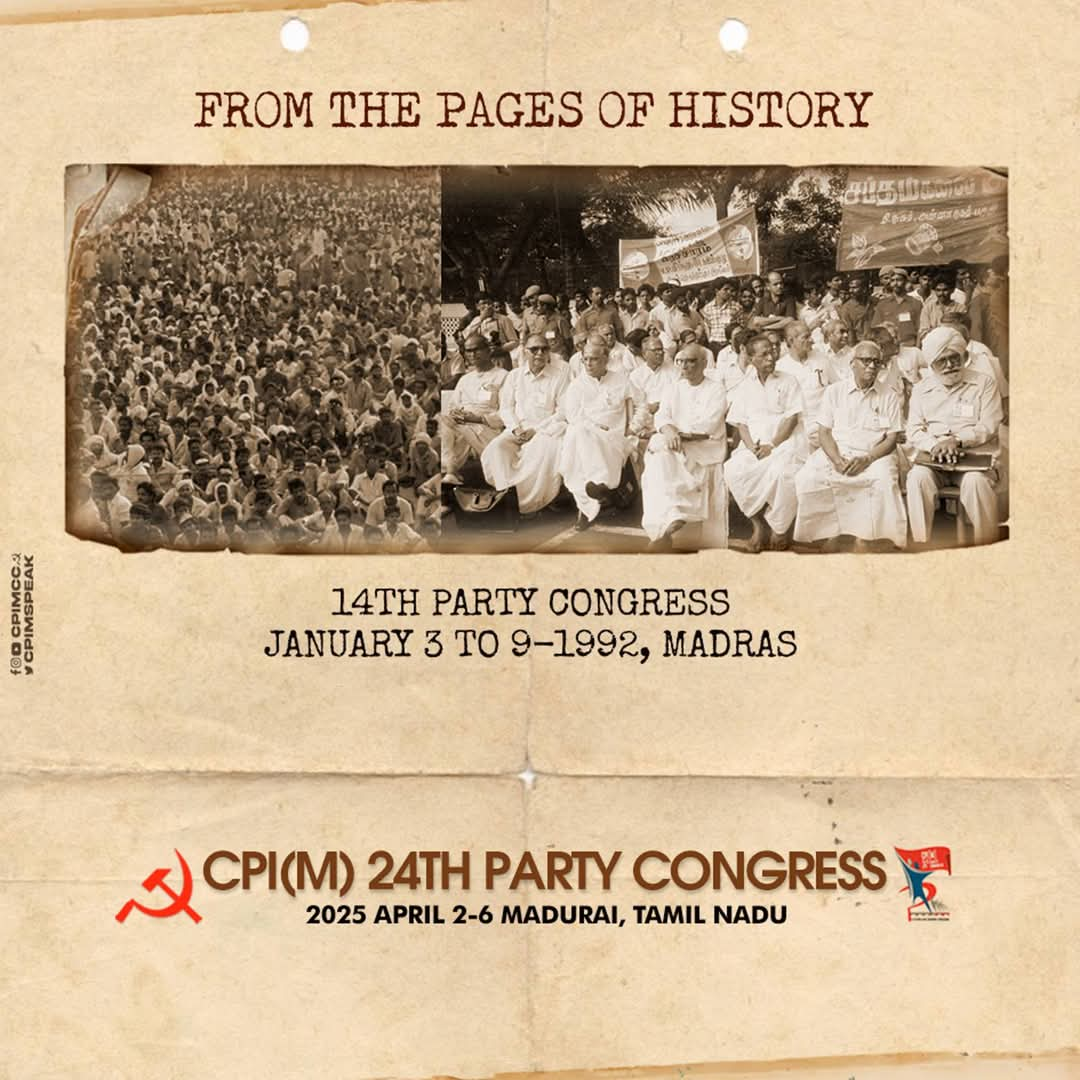The three-year gap between the 13th and 14th Congress saw the fall of socialism in the USSR and Eastern Europe, alongside turmoil in China after the Tiananmen Square incident. The withdrawal of Soviet aid and the ongoing US economic blockade increased risks for Socialist Cuba.
While acknowledging the need for further study on ideological issues, the CPI(M) remained committed to socialism, finding inspiration in global developments like Namibia’s independence, the advance of democratic forces in South Africa, and electoral gains by Communists in Nepal. It also resolved to strengthen solidarity with socialist countries, Third World countries determined to defend independence, and workers’ struggles across the globe.
Domestically, the 1989 Parliament elections saw Congress(I) lose ground, leading to V.P. Singh forming a government, supported by the Party from outside, that ultimately fell. The Congress managed to form a government in the next election, but economic policies under Narasimha Rao enabled the BJP to make significant gains.
The Congress called for stepping up mass struggles, restoring the primacy of Party building, and heightening the ideological work and projection of the Party’s line and policies. It also passed a resolution on “Updating the Party Programme” to reflect changes in the international and national situation.
The Congress elected a 63-member Central Committee, which in turn elected a 17-member Polit Bureau and Comrade Harkishan Singh Surjeet as General Secretary.
1992 -14th CPIM Party Congress
